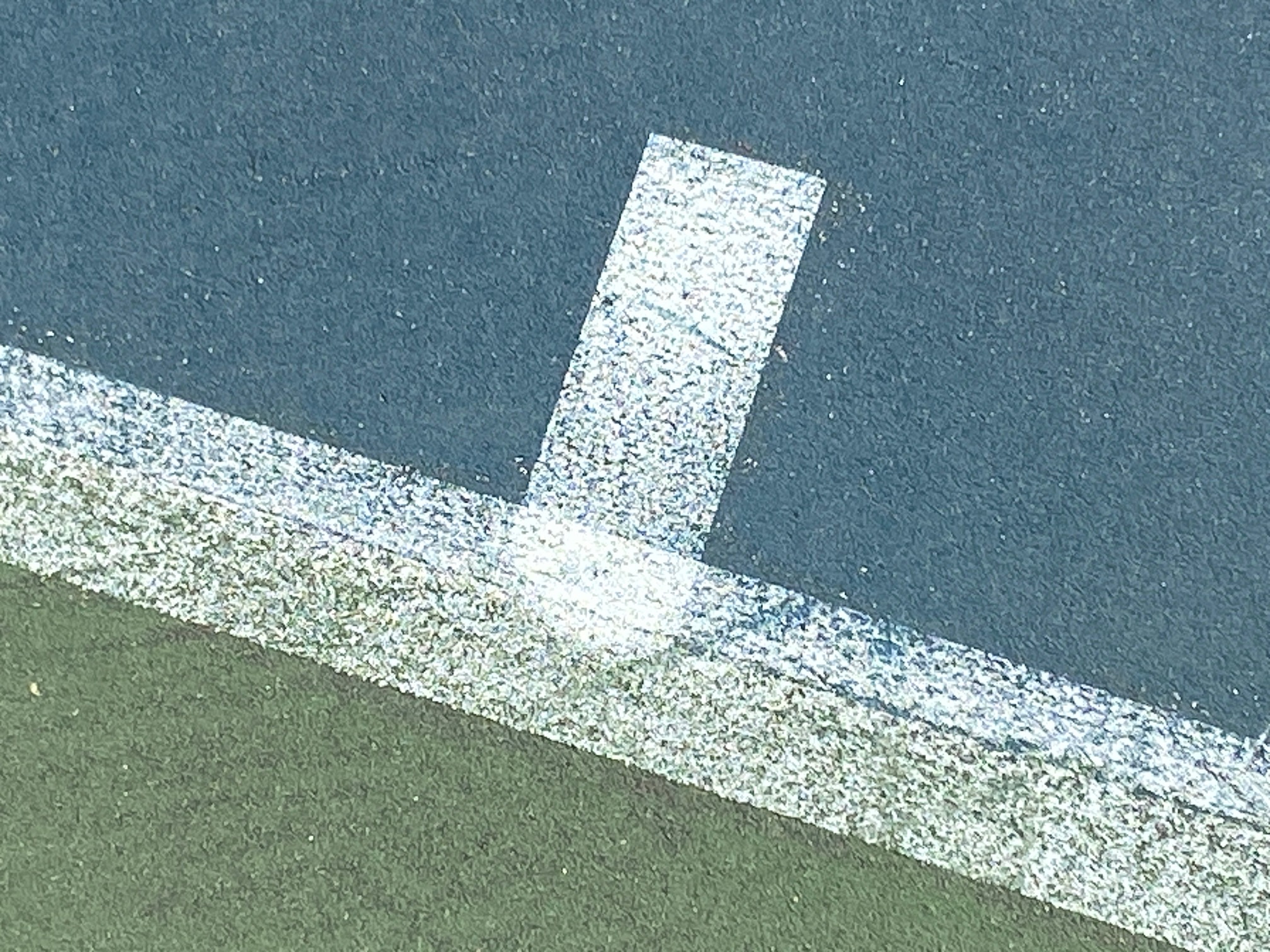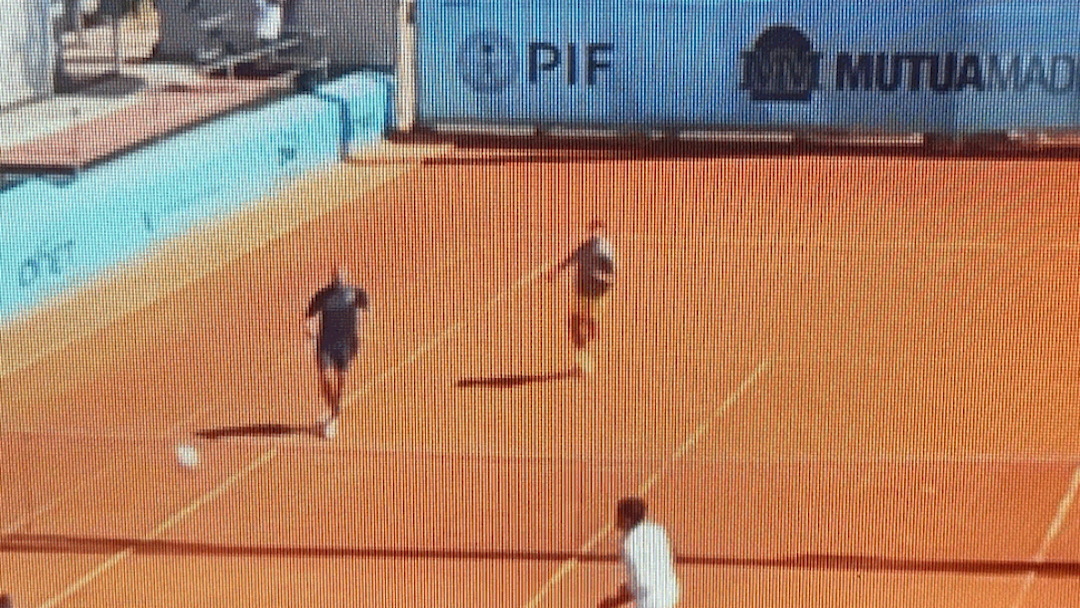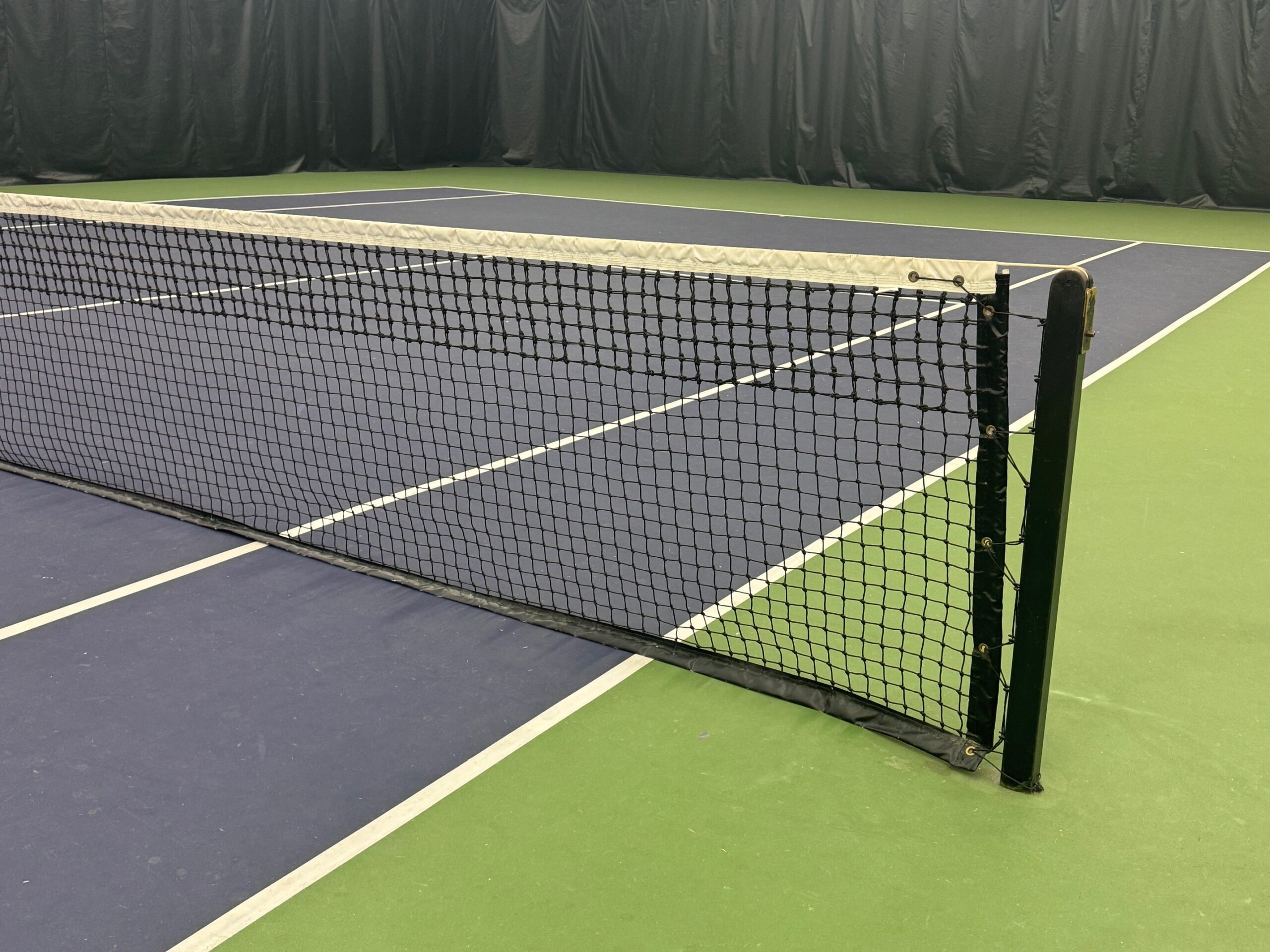Fiend at Court Unplugged
The genesis of ideas for some posts emerge from those moments immediately prior to the moment that the Fiend at Court Spousal Unit (FACSU) says something to me that warrants a “Wait-What did you just say to me?” reaction. We’ve been married for more than 30 years. Somewhere along the way I stopped hanging on his every word. That’s a two way street, though he usually excuses his attention lapses as “hearing loss.” In any case, today’s topic was considered and discarded before being resurrected due to a “Wait-What did you just say to me?” moment.
Following an early morning training session this week, the FACSU thanked me for “the hit.” As soon as that innocuous phrase was uttered, it was clear that the tennis phrase “having a hit” had jumped to the start of the queue for the installment of “Tennis Vernacular” themed posts this weekend. That phrase was introduced and repeated as a recurring concept throughout Grace Lichtenstein’s “A Long Way Baby” book. I regarded it as an interesting turn of phrase, but not one that was in contemporary usage. As it turns out, apparently the FACSU uses it from time to time, albeit in a shortened format.
Lichtenstein defines the concept of “having a hit” as casual and recreational rallying. The purpose of having a hit is simply to be on court striking some balls. That might be an important clue as to why I don’t use the phrase. Every moment I spend on the tennis court has a purpose. I think that fact may says more about my relationship with time than my relationship with tennis. I don’t have a lot of time to squander in any aspect of my life at the moment.
In a Long Way Baby, Margaret Court claimed that she thought she was just “having a hit” after she lost her exhibition match against Bobby Riggs. The other women professional players regarded it as evidence that she didn’t approach the match seriously or specifically prepare for it. The phrase was also used to describe Evonne Goolagong’s relatively casual warm-up and match preparation rituals. She frequently would just have a 30 minute hit before her matches. The other women professional players typically spend a lot more time on match day preparation.
“Having a hit” was also used to describe a situation when one of the USLTA professional circuit tournaments didn’t block off adjacent courts from the tournament matches. Consequently, casual park players would sometimes be “having a hit” adjacent to the professional matches as they were in progress. The early days of women’s professional tennis was a little rough around the edges.
All this brings me back to the question… Did I actually “have a hit” during that practice session with the FACSU? I don’t think so. To me the distinction lies in the objectives the players set for the session. If there is a specific development purpose, it is training. If the objective is to have fun or is completely absent, it is “having a hit.”
In that early morning training sessions, we played three iterations of “The Cone Game.” That is a drill to work on consistency hitting the ball at a target. Naturally the FACSU won two out of three of those games. By my count he won 5 out of the 7 times we played the Cone Game last week. Speaking of consistency, the rate at which he wins that game always chaps me.
Additionally, we played a tennis drill game I call “T and Biscuits.” I plan to fully detail that drill this coming Tuesday. In short, that drill sets up one player in a defensive and scrambling position and the point is played out from there. With doubles court positioning is as poor as mine, it is a pretty good idea to intentionally work on those scrambling points.
I think that I am simply not wired to “have a hit.” There is a possibility that I might develop that skill after I retire from my day job, but… why?



